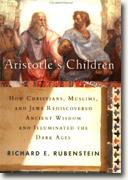Given the recent fuss by the heir of Samuel Barclay Beckett (on the heir's orders,
a production of Godot in Italy was
shut down because the two leads were played by female twins instead of males),
I read Beckett on File (1985)
compiled by Virginia Cooke.
I have mixed feelings about the control that Beckett wrote into his rules for play productions.
I see his micro-managing POV,
but I flexibility would allow for more varied productions that I would be interested to see.
Born 13 May 1906 in Ireland, Beckett was more comfortable in France
away from Ireland's "theocracy, censorship of books ... I preferred to live abroad" (p.8).
He was active in the French Resistance during WWII and
then in the French Red Cross; France awarded him the Croix de Guerre and the Medaille de la Resistance.
Beckett (p.85) did not write or talk about his work:
"I feel the only line is to refuse to be involved in exegesis
of any situation or issue.
If that's not enough for them,
and it obviously isn't, it's plenty for us,
and we have no elucidations to offer of mysteries that are all of their making."
1949-1950: En Attendant Godot; translated by Beckett as Waiting for Godot.
Eric Bentley (p.16) is quoted:
"His English title [Waiting for Godot] does not translate the much more apt French one
... which means 'while waiting for Godot'. The subject is not of pure waiting.
It is: what happens in certain human beings while waiting.
In waiting they show, ultimately, human dignity:
they have kept their appointment, even if Godot has not."
Hugh Kenner (p.16) states
"the most obvious thing about the world of this play,
that it resembles France occupied by the Germans, in which its authors spent the war years.
How much waiting must have gone on in that bleak world;
how many times must Resistance operatives ... have kept appointments not knowing whom they were to meet."
1954-1956: Fin de Partie; translated by Beckett as Endgame.
Eric Bentley (p.20) is quoted:
"Mr. Beckett is a poet; and the business of a poet is not to clarify, but to suggest,
to imply, to employ words with auras of association, with a reaching out towards a vision,
a probing down into emotion,
beyond the compass of explicit definition.
And this is exactly what the so dangerously simple dialogue of
Fin de Partie does.
1982: Quad, a ballet for four people.
An amazing piece.
My favorite of Beckett's works.
No words, just motion and color.
Runs a gammut of emotions.
Virginia Cooke
concludes:
|
Beckett's
... answer to Patrick Magee's question about how (in Endgame)
he should say that if he could find the key to the cupboard he would kill Hamm:
"Just think that if you could find the key to the cupboard you would kill him."
... Like the characters in Beckett's late play, the work stands isolated and
must speak for itself.
|
 Links.
Links.
 Booker Prizes
Booker Prizes
 Best books read.
Best books read.
 Books read
Books read
 Best writers of poetry and prose
Best writers of poetry and prose
 New books on Christianity and Spirituality by Pagels, Ehrman, et al.
New books on Christianity and Spirituality by Pagels, Ehrman, et al.

 Why read a book?
Why read a book?
 Harry Potter;
also
Harry Potter en Español.
Harry Potter;
also
Harry Potter en Español.
 The Mental Health of George W. Bush
The Mental Health of George W. Bush
 What do you want?
What do you want?
 How much does it cost?
How much does it cost?
 Are you willing to pay the price?
Are you willing to pay the price?

